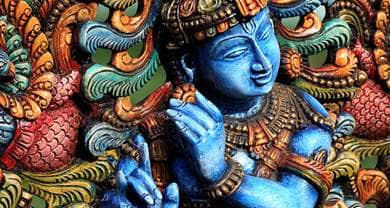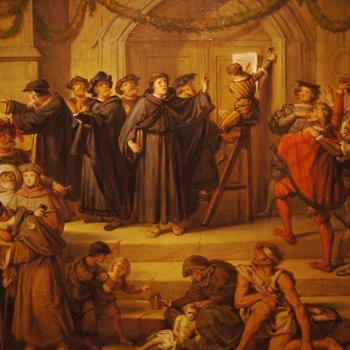- Trending:
- Olympics
- |
- Forgiveness
- |
- Resurrection
- |
- Joy
- |
- Afterlife
- |
- Trump

RELIGION LIBRARY
Hinduism
Hinduism is a religion that originated in the Indian subcontinent and is the oldest surviving religion in the world. It is a diverse religion that encompasses a wide range of beliefs and practices, but at its core, Hinduism is a monistic religion that recognizes the ultimate unity of all existence.
Hinduism is based on the belief in one supreme being, known as Brahman, who is the ultimate reality and source of all creation. Hindus believe in the cycle of reincarnation, in which the soul is reborn into a new body after death. The goal of Hinduism is to achieve moksha, or liberation from the cycle of reincarnation and union with Brahman.
Hindus follow a variety of practices, including puja (worship) of deities, yoga, and various rituals. Hinduism also has a rich tradition of texts, including the Vedas, the Upanishads, and the Bhagavad Gita. Hinduism has a strong emphasis on personal devotion and spiritual growth, and there is a wide range of philosophical and spiritual traditions within Hinduism.
Hinduism is the majority religion in India, and it also has a significant presence in other parts of the world, including Nepal, Indonesia, and the Caribbean. It is a complex and multifaceted religion that has evolved over the course of its long history and continues to influence the spiritual and cultural life of millions of people around the world.
Hinduism is a collective term applied to the many philosophical and religious traditions native to India. Hinduism has neither a specific moment of origin nor a specific founder. Rather, the tradition understands itself to be timeless, having always existed. Indeed, its collection of sacred texts is known, as a whole, as Sanatana Dharma, "The Eternal Teaching."It is thus a complex tradition that encompasses numerous interrelated religious doctrines and practices that have some common characteristics but which lack any unified system of beliefs and practices. Hinduism encompasses a number of major sects, as well as countless subsects with local or regional variations. On one level, it is possible to view these sects as distinct religious traditions, with often very specific theologies and ritual traditions; on another level, however, they often understand themselves to be different means to reach a common end.
The Hindu worldview is grounded in the doctrines of samsara (the cycle of rebirth) and karma (the universal law of cause and effect), and fundamentally holds that one's actions (including one's thoughts) directly determine one's life, both one's current life and one's future lives. Many, but not all, Hindus hold that the cosmos is populated by numerous deities and spiritual beings — gods and goddesses, or devas — who actively influence the world and who interact with humans.
The tradition is typically divided into four major sects: Shaiva (devotees of the god Shiva), Vaishnava (devotees of the god Vishnu), Shakta (devotees of the goddess), and Smarta (those who understand the ultimate form of the divine to be abstract and all encompassing, Brahman).
Learn from Patheos experts on Hinduism here.
Quick Fact Details:
- Formed: The exact beginnings of Hinduism are impossible to determine, since they evolved as time and culture impacted the religious ideas of early India.
- Deity: Many Hindus recognize a vast diversity of gods and goddesses; others believe in a Hindu "trinity" (trimurti): Brahman, Vishnu, Shiva; yet others claim an essential monotheism, believing that all the gods are manifestations of one.
Quick Fact Sources include www.adherents.com, www.bbc.co.uk/religion, The Oxford Handbook of Global Religions (2006), The Encyclopedia of Religion (2005), the Religious Movements Page at the University of Virginia, The Cambridge Illustrated History of Religions (2002), and the Encyclopedia of World Religions (1999).
Suhag Shukla tells us what it means to be Hindu in today's world
Related Content:
Quick Facts
| Formed | c. 2000 B.C.E. |
| Adherents | 1,000,000,000 |
| Deity | Polytheistic |
| Sacred Text | Vedas, Upanishads, Bhagavad Gita, Epics |
| Origin | India |
| Headquarters | None |










